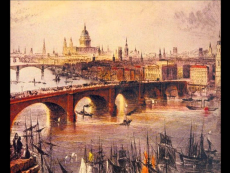
Email: reecejordan98@hotmail.co.uk
Total Article : 168
About Me:18-year-old sixth form student, studying English Literature, History and Government and Politics. My articles will broadly cover topics from the current affairs of politics to reviews of books and albums, as well as adding my own creative pieces, whether it be short fiction or general opinion.

There also exists within the poem, like the city with beauty, a potential, and that is for it to be read in allegorical terms. This is primarily prompted by the personification mentioned before as well as the ambiguity that is rendered by the capitalisation of ‘City’. Reading the poem through such an allegorical lens, it seems as though it could illustrate a time when mankind itself becomes open to nature and, to borrow from William Blake’s ‘London’, rid themselves of the ‘mind-forg’d manacles’. This is especially true of the fourth line where ‘the river glideth at his own sweet will’, which metaphorically suggests that, only when the pressure of early 19th century life (material gain and religious captivity, as suggested by the ‘ships’, ‘towers’ and ‘temples’) subsides, or is dismantled, can mankind truly be free to act naturally. Humans, like the river, at this moment are untarnished by such pressures. This notion of freedom and ease is reflected in the metre of the poem – iambic pentameter – which, being one that is of the most aligned with natural conversational speech, allows the poem to be read freely, just as the river, London, and indeed mankind, seem in this moment. In short, Wordsworth suggests that only once the ‘mighty heart’ of industry is still (dead) can the human race truly be free.
William Wordsworth’s ‘Composed Upon Westminster Bridge, September 3, 1802’ stands as more than just a simple glorification of England’s capital. Indeed, the very obverse is true. Wordsworth’s sonnet is a testament to the power and beauty of nature. It is a subtle critique of early 19th century London as well as a glimpse at a kind of utopia, a return to a more natural state. Perhaps its most sombre residue lies in the very fact that even now, more than two hundred years on, the poem still has such resonance; we still share the same ideal.
Image Credits: youtube.com

0 Comment:
Be the first one to comment on this article.